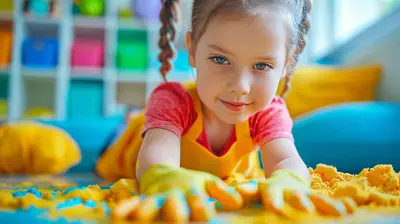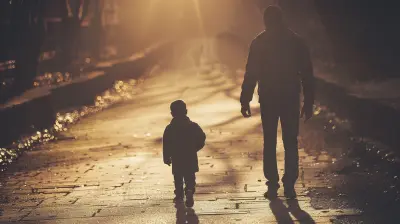Mindful Potty Training: Fostering Patience in the Process
15 July 2025
Ah, potty training — the magical (and mildly terrifying) milestone that every parent both anticipates and dreads like the finale of a reality TV show. You know it’s coming, you know it’s important, and yet somehow, nobody told you how much bodily fluid would be involved. Or how many pairs of tiny undies you’d have to wring out like a seasoned laundromat technician.
But what if we took a different approach? One that's a little less frantic, a little more Zen? That’s where mindful potty training comes in — yes, you read that right. It’s not a yoga class for toddlers (though who wouldn't pay to see that), but a way to foster patience and peace in a process that often feels like it's designed solely to test your sanity.
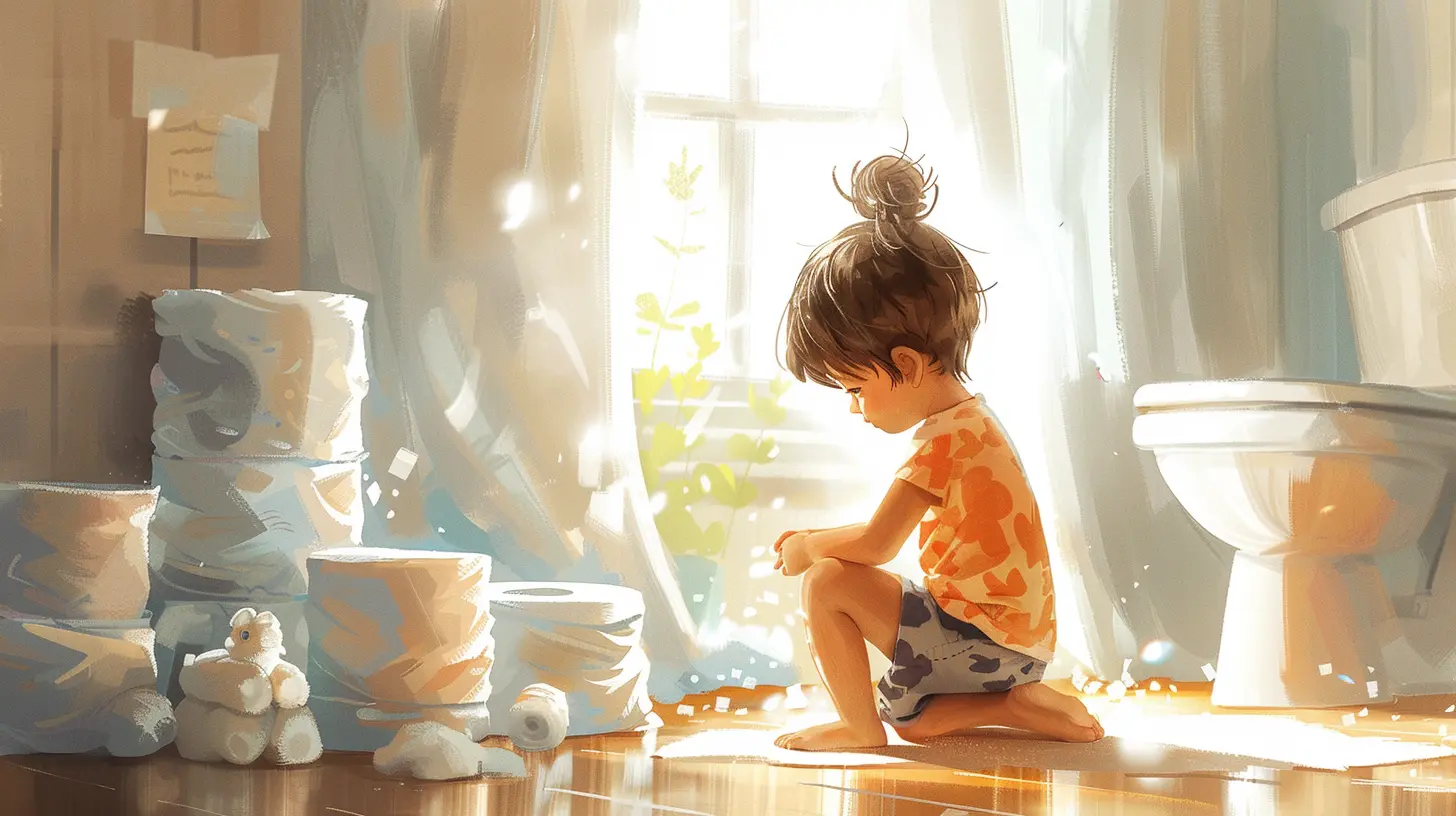
Why Mindfulness Matters in Potty Training (And In Life)
Let’s be honest, potty training isn’t just about ditching the diapers. It’s a life skill, both for your kid and for you. It’s a lesson in patience, growth, and sometimes, surrender. And when we approach it mindfully — meaning, with awareness, intention, and a truckload of compassion — it becomes a whole lot less frustrating.Okay, But What IS Mindful Potty Training?
Imagine this: Instead of bribing your toddler with the 47th sticker on the same chart, you sit with them in the bathroom, talk about what’s happening, and focus on the moment. Mindful potty training is all about being present — tuning into your child's emotional and physical cues, and guiding them with empathy.It means not rushing them if they’re not ready. It means accepting accidents without responding like someone just spilled red wine on your beige carpet. It means breathing… a lot of breathing.
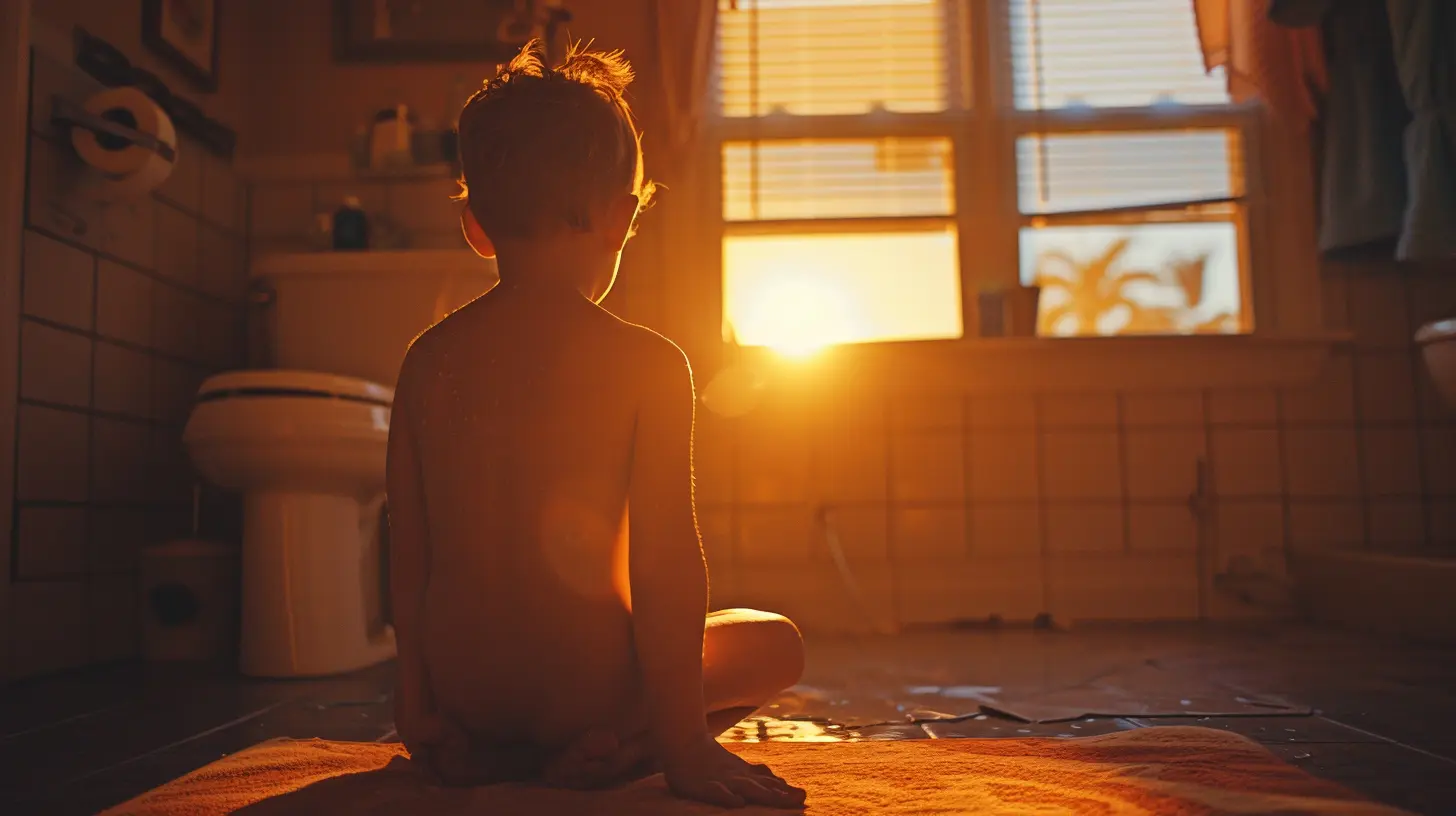
First Things First: Is Your Kid Even Ready?
Before you bring out the training potty and start telling everyone that little Jimmy is "starting his journey,” check for the signs of readiness. And no, randomly sitting on the potty once and yelling “TA-DA!” isn’t quite it.Here are a few actual signs your child might be ready:
- Dry diapers for longer stretches (hello, bladder control!)
- Interest in the bathroom habits of others (Super awkward. Super normal.)
- Hiding to poop (Don’t ask why, just go with it.)
- Telling you when they need to go — or that they’ve already gone
- Following simple instructions (i.e., not putting the potty on their head)
If none of these apply, hold your horses. Remember, potty training is a milestone, not a race. There’s no prize for finishing first — just more laundry if you jump the gun.
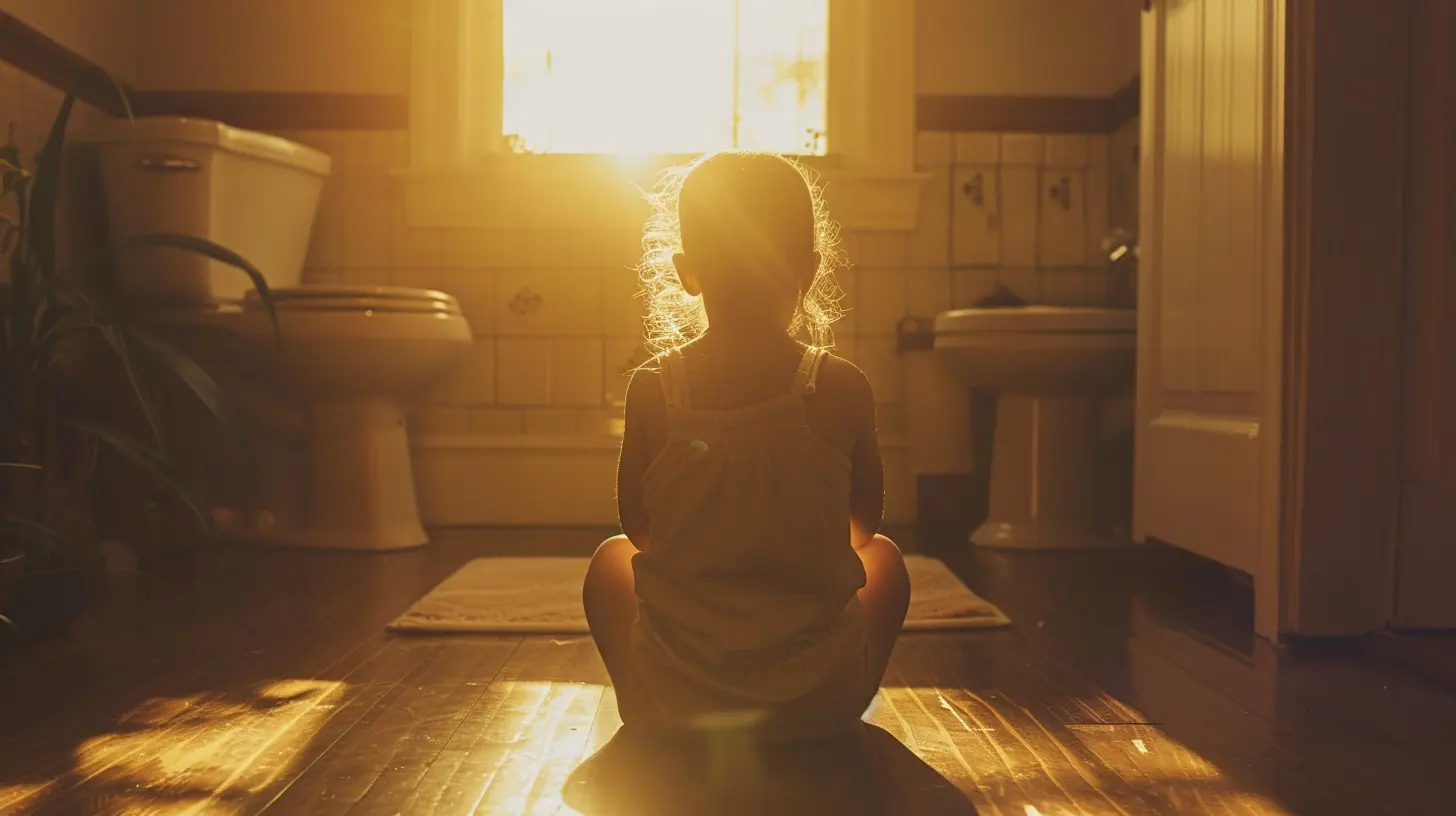
Create a Calm, Encouraging Environment
Let’s talk ambiance. You don’t need spa music and incense (though honestly, that might help YOU), but creating a low-pressure environment can work wonders.Things You Can Do:
- Let your kid pick out their potty. Bonus points if it's shaped like a cartoon animal that cheers.- Read books about potty training together (yes, there’s a whole genre for that).
- Keep the potty visible and accessible. This isn’t hide-and-seek.
- Use encouraging language. Avoid implying shame or disappointment — this isn’t a job interview.
Instead of, “Why didn’t you tell me you had to go?” try “It’s okay, everyone has accidents. Let’s try again next time.”
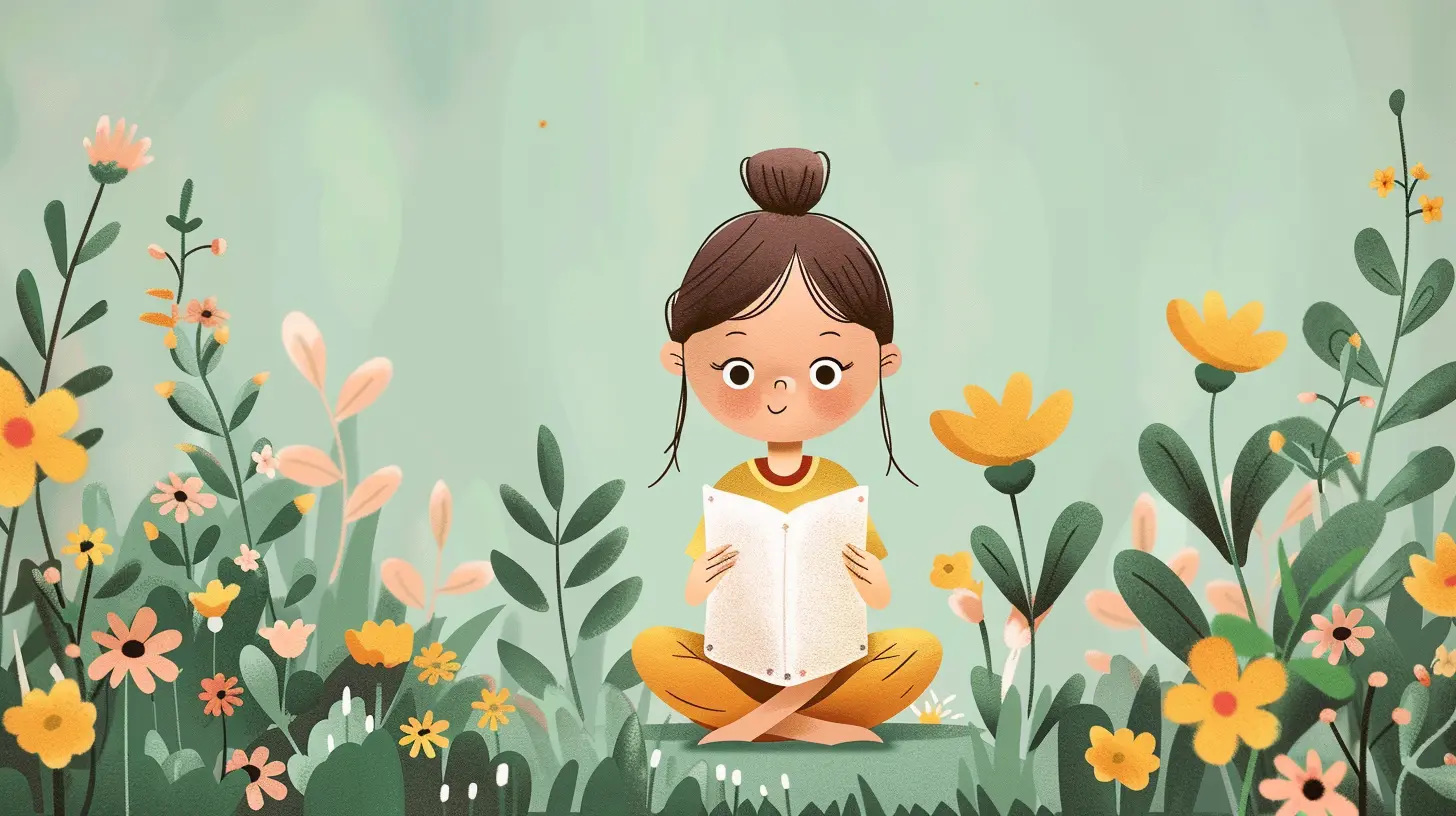
The Art of Waiting (And Waiting… And Waiting)
Here’s where patience comes in. And not the "I-wait-in-the-Starbucks-line-for-15-minutes" kind. We’re talking about next-level, spiritual-guru-in-the-mountains patience.Why Pushing Backfires
When we rush or pressure our kids to "get it already," the process slows down. Some kids will straight-up dig their heels in out of sheer stubbornness. Others might develop anxiety around the potty, which trust me, is not a good place to have an existential crisis.Let the process unfold naturally. Celebrate small wins, like sitting on the potty with pants on. Then with pants off. Then actually using it. Baby steps. Or, in this case, baby plops.
Handling Accidents: Grace Under Fire
Accidents are not only inevitable, they’re practically a rite of passage. There will be pee on the floor. There will be poop where poop should never be. Accept this as part of the journey. It’s not failure. It’s learning. Sticky, smelly learning.What NOT to Do:
- Don’t scold or punish. (Unless you want to raise a kid who pees behind the couch out of spite.)- Don’t show frustration. (Pro tip: scream into a pillow when needed.)
- Don’t act surprised. (“Oh no! You peed?” Yes, of course they peed. They’re learning.)
Instead, treat it like a spilled glass of milk. Clean it up, say "it's okay," and move on.
Consistency Is Key (But Not the Kind That Makes You Cry)
Kids thrive on routine. But that doesn’t mean you need a military-grade schedule and a clipboard. Just keep it consistent. Same potty, same general time, same encouraging tone.Create Simple Potty Routines:
- After waking up- Before leaving the house
- After meals (yes, digestion is your new schedule boss)
- Before naps and bedtime
Keep a small potty in the car or in multiple rooms if possible. Why? Because toddler bladders wait for no one.
Keep the Laughter Flowing (Pun Absolutely Intended)
Let’s lighten the mood a bit. Because let’s face it — you’re literally dealing with human waste here. And if you can’t laugh about it, you might cry in a Target bathroom (no judgment).Make up a song about using the potty. Do a silly dance. Let your child put stickers on the toilet. Make it fun, make it light, and for the love of Huggies, don’t take it so seriously. They're not going to college in pull-ups. Probably.
Celebrate Every Tiny Victory
Clap. Cheer. Do backflips (mentally — let’s avoid ER visits). Celebrate every little win like they just won an Olympic medal in bladder control.Be their hype squad. Your reaction helps shape their self-confidence and keeps them motivated.
Reward Ideas That Don't Involve Candy:
- A “potty party” with music and dancing- A special sticker chart
- Extra bedtime stories
- A phone call to Grandma to tell her the big news (because Grandma lives for that stuff)
Let Go of the Timeline
Ah yes, the mythical "three-day potty training" or “potty-train-your-kid-by-2-or-you’re-a-failure” guide. Throw that nonsense in the trash.Every kid is different. Some get it in three days; others take months. Some still wet the bed at five. Spoiler: that's normal. Google developmental timelines and you’ll see a huge range.
The only timeline worth following? Your child’s.
When to Call in Reinforcements
There may come a time when you feel like you’ve tried everything — you’ve remained patient, mindful, positive, and still… nothing. That’s okay.If your child is truly resisting, showing fear, or it's been months with zero progress, talk to your pediatrician. Sometimes there's a physical issue or just a need for some professional guidance.
No shame. No guilt. Just more info to help the process.
Final Thoughts: Embrace the Mess, Embrace the Moment
In the grand scheme of parenting disasters — stepping on LEGOs, tantrums in the middle of Costco, mystery smells in car seats — potty training is just one part of the hilariously unpredictable journey.Mindful potty training doesn’t require perfection. It just asks you to slow down, be present, and show your tiny human that learning something so big takes time — and that's okay.
So light a candle (for the smell, obviously), take a deep breath, and know that you're doing just fine. Poop happens.
all images in this post were generated using AI tools
Category:
Potty TrainingAuthor:

Maya Underwood
Discussion
rate this article
2 comments
Bridget Moses
Mindful potty training emphasizes patience and emotional support, transforming a typical challenge into a bonding experience. By focusing on the child’s readiness and using positive reinforcement, parents can cultivate a stress-free environment. This approach not only aids in successful potty training but also strengthens the parent-child relationship, fostering trust and communication.
December 8, 2025 at 4:48 AM

Maya Underwood
Thank you for your thoughtful comment! I completely agree that a mindful approach to potty training can enhance the process and strengthen the parent-child bond. Patience and emotional support truly make a difference!
Amira Roberts
This article offers a refreshing perspective on potty training by emphasizing mindfulness and patience. It’s a great reminder that each child is unique and that the process should be nurturing rather than stressful. Fostering a calm environment not only eases the transition but strengthens parent-child bonds. Highly recommend!
July 21, 2025 at 3:18 PM

Maya Underwood
Thank you for your thoughtful comment! I’m glad you found the article helpful in promoting a nurturing approach to potty training.
